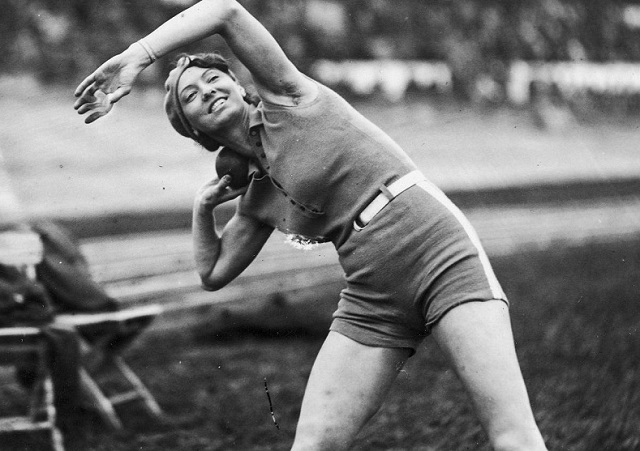The first gold-winning female athlete in Olympic history: Who is Halina Konopacka?
Women had the opportunity to appear in the Olympics for the first time at the 1928 Amsterdam Games. The first competition in which women participated was the discus throwing competition. She was the first female winner of the Olympics. She also won Poland's first gold medal.

In September 1939, a message reached Robert E Brett, the British captain of the oil tanker SS Eocene, which was sailing off the Black Sea. Captain Brett, who changed his route after the message, had a meeting with the British deputy consul in Constanta, Romania, a few days later. The essence of the meeting was this: There was a large amount of gold that needed to be smuggled from the Nazis and a ship was needed for this.
The gold actually belonged to Poland. The Nazi occupation had recently begun, and former Treasury Secretary Ignacy Matuszewski took it upon himself to save his country's gold reserves. The gold was first removed from Poland by trucks and brought to Romania. In this process, everyone was mobilized, even Matuszewski's wife took part in the transfer and worked as a truck driver.
Halina Konopacka (26 February 1900 – 28 January 1989) was a Polish athlete. She won the discus throw event at the 1928 Summer Olympics, defeating American silver medal winner Lillian Copeland, breaking her own world record, and becoming the first Polish Olympic champion. After retiring from athletics she became a writer and poet. She immigrated to the United States after World War II, and died there.
The SS Eocene tanker, which set out from Constanta with the gold loaded and Polish passengers, passed through the Bosphorus and anchored. After the necessary arrangements, the first stage of a long journey was over for the gold, and Polish passengers were loaded onto a train at Haydarpaşa Train Station. Among those passengers, there was someone who once again fought for "gold" for her country.
Born on February 26, 1900, Halina was the child of a well-to-do family. At the same time, this was such a family that almost everyone was interested in a branch of sports. While Halina was engaged in horse riding, swimming, and skiing at a young age; Her father Jakub and her sister Czeslawa played tennis, and her brother Tadeusz was interested in football. Therefore, sports was an activity that was encouraged in the Konopacka family.
Thanks to the opportunities, Halina had the opportunity to experience many sports branches.
He was going to try discus throwing for the first time during an athletics training she attended with the influence of her friends. This was not an ordinary experiment. Because Halina broke the Polish discus throw record in her first attempt. Maurice Baquet, the coach of the Polish National Team, witnessed this incident and realized that she was faced with a great talent. Halina's physical characteristics also gave her many advantages. Her height of 1.80 cm and her strength directly proportional to her height intimidated her opponents. Ultimately, this was reflected in the result.
Halina would break her first world record in 1926; Thanks to her ambition and persistence, she would quickly reach the level of elite athletes. In addition to discus throwing, she also won national championships in shooting, javelin, high jump, powerlifting, and pentathlon. Now it was time for another activity. At the 1928 Amsterdam Games, where women would compete in athletics for the first time…
Women had the opportunity to appear in the Olympics for the first time at the 1928 Amsterdam Games. The first competition in which women participated was the discus throwing competition. In the competition, which took place on a rainy day, Halina felt great confidence from the first shot. A Polish audience group of approximately 30 people took their place in the stands with their red and white flags.
In light of these emotions, Halina showed her best performance on the athletics field. She was already one of the biggest favorites before the competition. However, its performance was above expectations. As she wished and aimed, her red and white flag was raised as high as possible. She was the first female winner of the Olympics. She also won Poland's first gold medal.
In December of the same year, another change took place in Halina's life. Halina married bureaucrat Ignacy Matuszewski. This marriage would perhaps lead her to embark on a much greater adventure years later. At the end of a journey that started in 1939 and extended from Poland to Romania, from Turkey to Beirut, from France to Spain, from Portugal to Brazil, Halina and her husband took refuge in the USA. And by saving her country's gold reserves from the hands of the Nazis... Halina spent the rest of her life writing poetry and painting in the USA.
Halina Konopacka... Halina, who missed the gold medal from her rivals in the Olympics with her red beret, left the Nazis behind in another fight and preserved the gold belonging to her country. There was a rule to this business. If there was Halina somewhere, the gold would stay in Halina...
